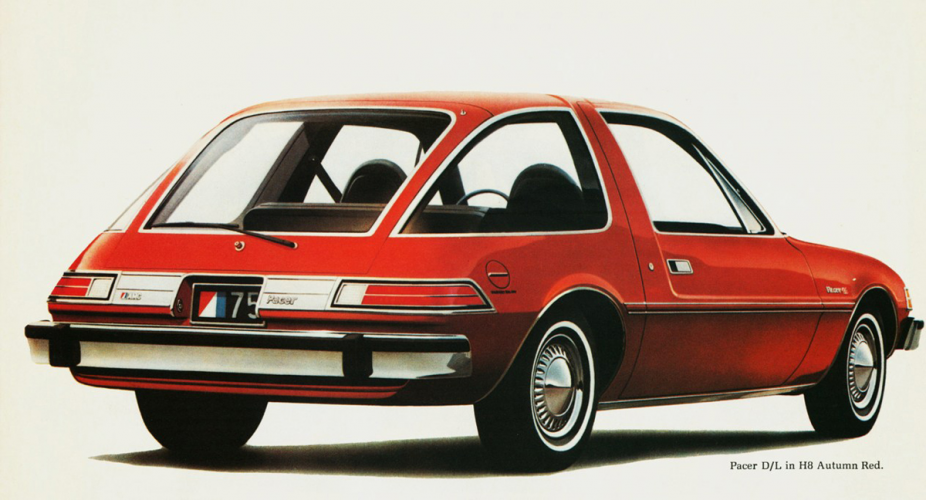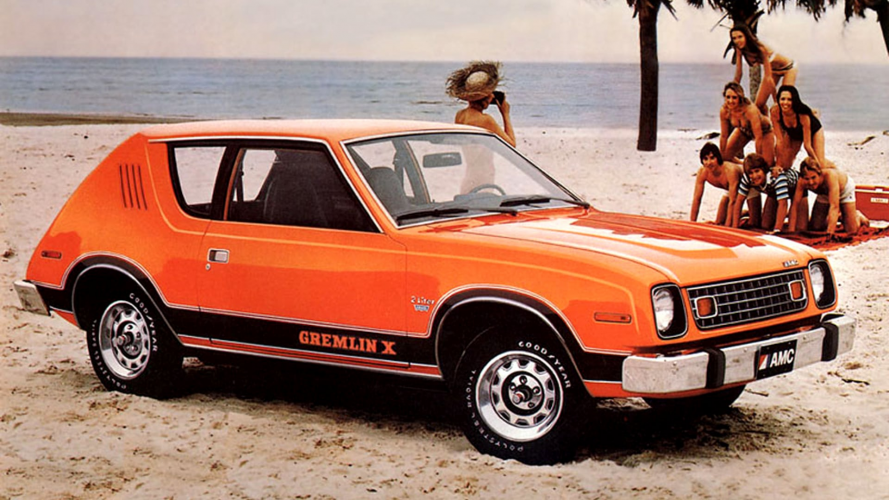Gerald Martin
Well-known member
- Joined
- Jul 3, 2009
- Messages
- 8,930
Will all new Stone Glacier packs come with a free flame thrower?
Follow along with the video below to see how to install our site as a web app on your home screen.
Note: This feature may not be available in some browsers.
Who needs bullets when you can kill em and cook em simultaneously?Will all new Stone Glacier packs come with a free flame thrower?
That's why I don't recommend gear much anymore, other than stuff I know for sure is made in the USA, like Coopers, Western Mountaineering, etc. The stuff I have that lasts forever is not necessarily the same stuff companies put out now.The tents and sleeping bags were never made in the US. Same factory as Mountain Hardware, etc. all in Vietnam.
I think you're a little too focused on the US Manufacturers. 20 years ago if you'd ever heard of Kia or Hyundai, at best we would mock them. While these two examples might not fit your desire or aesthetic, there is no doubt they've impacted the auto industry. Obviously, to your point Tesla has made massive impacts and brought the mainstream auto giants, kicking and screaming, to new tech.Take a peak at the auto industry. How has consolidation helped innovation? Until Telsa there hadn't been a new automaker in how many decades; generations?


I'm saying in capitalism with rules if you do a crap job your customers leave, there is still competition. Talent is allowed to leave find new backers and create better products.Take a step back, you are literally arguing for polar opposites. Advocating for consolidation (someone has to be the buyer) while trying to say that's good for startups.
Take a peak at the auto industry. How has consolidation helped innovation? Until Telsa there hadn't been a new automaker in how many decades; generations?
My parents were taking us to soccer practice in a hyundai excel in the 80s. They've been imported since the 70s.I think you're a little too focused on the US Manufacturers. 20 years ago if you'd ever heard of Kia or Hyundai, at best we would mock them. While these two examples might not fit your desire or aesthetic, there is no doubt they've impacted the auto industry. Obviously, to your point Tesla has made massive impacts and brought the mainstream auto giants, kicking and screaming, to new tech.
As far as the Big 3 automakers are concerned... maybe they shouldn't have made the Pacer, or the Gremlin, or the Aztec. or the PT Cruiser.
View attachment 206945View attachment 206946
My original comment was not intended that no one should be allowed to sell a company, but that it doesn't fit my idea of the American dream. Seems more like flipping houses.Just trying to make the point it's not really buying companies that is the issue as much as unscrupulous and anti-competitive business behavior.
I find it interesting that Hyundai is the nail upon which you decided to hang your metaphorical hat... Not the shit cars, designed in the vacuum that was Detroit, from approximately 1972-2002, but I respect your stick-to-it·ive·ness. And while I respect your right to your own opinion, not your own facts. The Hyundai's were not imported until 1986.My parents were taking us to soccer practice in a hyundai excel in the 80s. They've been imported since the 70s.
You got me, I should have kept reading... they first exported in 1976, but it was not to the US, that was my assumption, and an incorrect one. I can assure you, I was being driven to soccer in '88 in one.I find it interesting that Hyundai is the nail upon which you decided to hang your metaphorical hat... Not the shit cars, designed in the vacuum that was Detroit, from approximately 1972-2002, but I respect your stick-to-it·ive·ness. And while I respect your right to your own opinion, not your own facts. The Hyundai's were not imported until 1986.
Here is what I would guess happened. Covid hits, shipping rates skyrocket because of supply chain problems, and SG had trouble finding space on ships to get goods from point A to point B. Larger players like Walmart, Costco, Target, etc start chartering the entire ship (or even just buy the ship) and this problem doesn't look like it is going away. SG, as a small, independent player who was looking to just get a couple of containers transported found itself getting priced out of the market in an environment changed in ways it could never have imagined. So it made complete sense to "partner" with a larger name where combining all the brands could get some suppy-chain power when the need was shipping containers. Scale matters, always has, but more now. Who knows what "normal" looks like going forward.Nice interview w/ Vista CEO about the acquisition:
You really have to consider capital requirements for new entrants in the industry. These tech companies, Amazon, and Walmart exclude new companies by being big. Retail is much different. Nobody here was disparaging the current SG owners for selling. Customers are wondering what will happen to FUTURE product quality. I'm currently looking for a 36" rectangular down sleeping bag. I'm 6'2" and hate these mummy bags. I did find a company in Poland that might be able to make me a custom bag. Contacted Feather Friends in Seattle, they couldn't do it. Nice people, very helpful. Also contacted Down Works in CA. Guy was a real Whole. I would NEVER buy a feather from them. Totally rude. May the SG guys will get into custom sleeping bags, and insulated tents to compete with Crua.My argument was if the entire point of starting a business is to sell it, then you end up with Walmart and Amazon, or maybe just one of them eventually. Once you get enough market consolidation, then they can literally drive the rest of the market out of business. This was the philosophy that killed main street USA. Does it work in drilling, maybe, I have no idea. Does it work in tech, you could probably argue that both ways, I mean we have such a large amount innovation that wouldn't ever become mainstream without being purchased by larger to companies, but you also end up with Windows or Apple. You end up with Android or Apple, there aren't really any other (or many other) actual choices in a market dominated by just a few giant players.
With such a high growth business, ya don't focus on cost cutting. SG is in high product demand. Vista is investing in the business by building a new retail space and warehouse. They need good, dedicated employees. And that is a tough problem to manage. Vista does have good brands. I was impressed with the CEO interview, both as a customer and an investment manager with 35 years experience, and former small business owner.Here is what I would guess happened. Covid hits, shipping rates skyrocket because of supply chain problems, and SG had trouble finding space on ships to get goods from point A to point B. Larger players like Walmart, Costco, Target, etc start chartering the entire ship (or even just buy the ship) and this problem doesn't look like it is going away. SG, as a small, independent player who was looking to just get a couple of containers transported found itself getting priced out of the market in an environment changed in ways it could never have imagined. So it made complete sense to "partner" with a larger name where combining all the brands could get some suppy-chain power when the need was shipping containers. Scale matters, always has, but more now. Who knows what "normal" looks like going forward.
If I was on the inside and reading the interview with the Vista CEO things like "strong cultural fit" and "synergies" would make me nervous. Those things are business buzz words for cost cutting. If you're a customer, no worries. I doubt you will see any material change in products for years. But read between the lines in the interview. Growth means an expansion of the customer base, the product lines, or a lowering of costs.
We don't have capitalism today. We have Crony Capitalism, kinda like the late 1800s and early 1900s with JP Morgan, Rockefeller, and Andrew Carnegie. Now dumbfcks like Pelosi, Biden, Harris, etc etc are involved. Musk goes to them to get a subsidy or pass a law to get new business.I'm saying in capitalism with rules if you do a crap job your customers leave, there is still competition. Talent is allowed to leave find new backers and create better products.
Standard Oil cheated... and used violence in many cases to get rid of the competition. I think the companies today that we all have issues with are similarly cheating/gaming the system to make sure they win.
I think with cars, the big three should have failed and allowed to go under, this would have created room in the market for lots of new companies, which would have eventually consolidated, and made better more innovative companies. So example of "cheating"... but also geopolitics... a ton of people getting laid off etc. I don't know enough to say if the bail outs were good or bad... but... cheating.
Vista isn't Ford, so I'm not really worried about it.. if SG starts to suck there is plenty of room for someone else to make a better hunting pack, and that's the real point.
Both of your examples ARE retail that got big by driving small, then medium businesses out. Walmart wasn't born big, nor was AMZN, they built empires by killing competition. Maybe that is the American dream. Maybe that's what everyone wants and strives for, to be the Wilks bros.You really have to consider capital requirements for new entrants in the industry. These tech companies, Amazon, and Walmart exclude new companies by being big. Retail is much different.
They seem to be doing better quality wise with Remington than Remington was. SG didn’t need an overhaul though so I hope it doesn’t go south. It’s strictly business for them and I get it and it improves the lives of those on the selling end financially. For the consumer though you hate to see it go this way.With such a high growth business, ya don't focus on cost cutting. SG is in high product demand. Vista is investing in the business by building a new retail space and warehouse. They need good, dedicated employees. And that is a tough problem to manage. Vista does have good brands. I was impressed with the CEO interview, both as a customer and an investment manager with 35 years experience, and former small business owner.